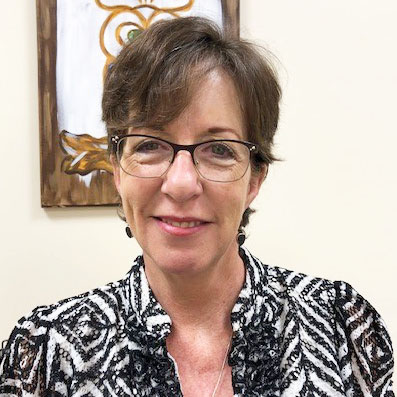Hubbard House Volunteers Built and Sustain This House of Hope
When you consider the impact volunteers have on an organization, it’s common to say an organization wouldn’t be here without the support of volunteers. For Hubbard House, that couldn’t be truer.
Hubbard House was founded by a passionate group of volunteers, who knew there was a need to support survivors of domestic violence in the Jacksonville area. A couple of those volunteers were riding bikes down Hubbard Street in the Springfield area, saw a house up for sale and the rest is history.
But it didn’t end there.
Since our founding in 1976, volunteers have been a backbone of Hubbard House. Some bring together friends or colleagues to volunteer as a group, others step up with their own time. To this day, hundreds of people donate thousands of hours of their time each year. Every single one of those hours matters with the many different facets of life-saving, life-changing work Hubbard House does.
In Shelter, that means stocking pantries, connecting participants to advocates, supporting children’s programming, and staffing the 24/7 Hotline and Textline. Through our outreach services, that means advocating for survivors and their children in countless ways, in Duval and Baker counties. At our Thrift Store, that means processing the wonderful community donations we receive to support the needs of survivors.
But it doesn’t end there.
When we need mulch put down? Hubbard House volunteers answer our call. When we need someone to host a party for kids in shelter? Hubbard House volunteers answer our call. When we need help running major events – from holidays programming to our annual Stand Up & Stride Domestic Violence Awareness Walk – Hubbard House volunteers answer our call.
And they don’t only answer the call, they make it. Do we need help with a special project? Are there some events coming up they can support? Do we have any donation-related needs they can rally people behind? Our volunteers are constantly looking to not just sustain, but grow, their support.
Even during the height of the COVID-19 pandemic, when Hubbard House continued to support survivors, but volunteers couldn’t come on-site, they didn’t just stay to the side. They engaged with us from their homes and offices – organizing donation drives, creating activity kits for kids, supporting administrative needs and so much more.
And we know, it won’t end there.
Our volunteers are driven by their deep passion to not only support survivors of domestic violence but raise awareness in our community. They attend community events and connect us to opportunities to present about how to support survivors and the free, confidential support Hubbard House provides. They understand how important it is to create social change, so we can see a future where the vision of Hubbard House is fulfilled: every relationship violence-free.
It would be hard to find a more passionate group of people, than those who support and volunteer with Hubbard House.
So during this National Volunteer Week, our message to our volunteers: whether you have contributed a few hours or been with us for years, thank you doesn’t do justice to the appreciation we have for you. We truly couldn’t do this without you.
Survivors of domestic violence are not alone – and will never be alone – because Hubbard House and our amazing volunteers will always be here.
—
If you are interested in volunteering for Hubbard House, please email volunteer@hubbardhouse.org to learn more!









 Gabbie, Hubbard House Public Health Intern
Gabbie, Hubbard House Public Health Intern
 I became involved in the Hubbard House Walk in 2017 when my wife, Val, asked me to walk with her job, Bank of America,” said Donnie. “I had so much fun doing the walk, I brought it up to my HR manager at C&S Wholesale Grocers, Inc., the following year. “
I became involved in the Hubbard House Walk in 2017 when my wife, Val, asked me to walk with her job, Bank of America,” said Donnie. “I had so much fun doing the walk, I brought it up to my HR manager at C&S Wholesale Grocers, Inc., the following year. “ at my son and I could or would ever be safe, but none of that was true.”
at my son and I could or would ever be safe, but none of that was true.”